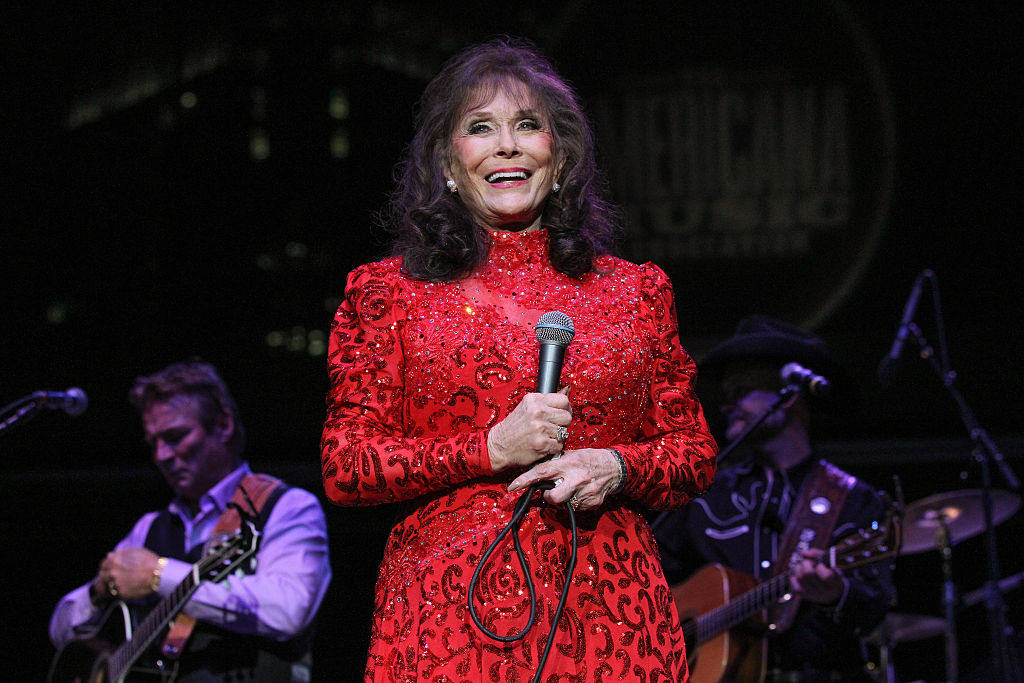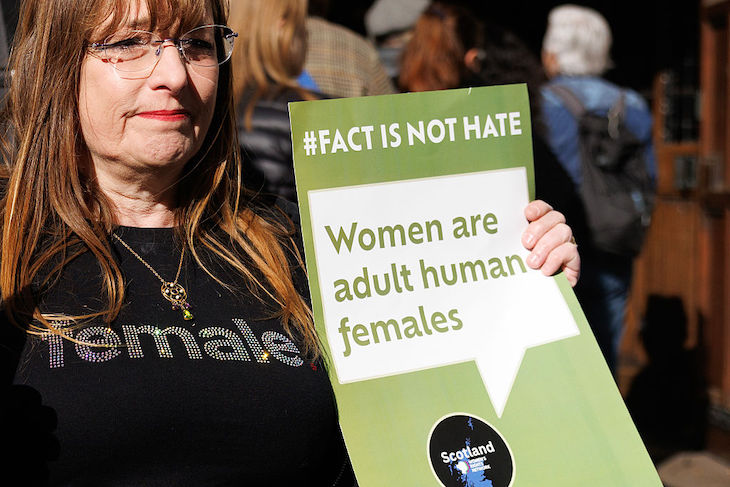Country music superstar Loretta Lynn died last week at the age of 90. Many in the media are remembering her as a feminist and several of her songs as feminist anthems. Yet Lynn herself said, “I’m not a big fan of Women’s Liberation, but maybe it will help women stand up for the respect they’re due.”
It’s not surprising that the left wants to claim Lynn as one of their own — she was a badass and extremely successful. But in listening to her music and digging deeper into Lynn’s life, I’ve come to view “The First Lady of Country Music” not as a typical man-hating feminist, but rather as someone who was proud of the heritage that made her a tough woman and who wanted to use her remarkable musical gifts to uplift millions of women who shared her experiences. I, for one, feel prouder of my Appalachian, coal-mining roots every time I listen to Loretta Lynn.
As she sings in her hit autobiographical song, “Coal Miner’s Daughter,” Lynn was born and raised in “Butcher Holler” during the Depression. “We were poor but we had love,” Lynn wrote. “That’s the one thing that Daddy made sure of / He shoveled coal to make a poor man’s dollar.”
Lynn’s relationship with her father is portrayed in the outstanding biopic “Coal Miner’s Daughter” — based on her autobiography of the same name — as warm and loving. The fact that her legacy — through a hit song, a memoir, and movie of the same name — is tied to being her father’s daughter implies she was something of a daddy’s girl and held her father in high esteem.
When Lynn married Oliver “Doolittle” Lynn at 15 after knowing him a month, her parents were understandably apprehensive. “The night I announced I was getting married, Daddy paced for hours on the porch,” Lynn recalled. She also remembered that during her childhood, “Daddy was real gentle with kids. That’s why I expected so much out of marriage, figuring that all men should be steady and pleasant.”
But Lynn’s marriage to “Doo” was fraught with hard times. “He never hit me one time that I didn’t hit him back twice,” she said. In her memoir, Lynn called their 50-year marriage “one of the hardest love stories,” but revealed she stuck with Doo through his alcoholism, infidelities and violent fights because “He thought I was something special, more special than anyone else in the world, and never let me forget it. That belief would be hard to shove out the door.”
Lynn also credited her husband with pushing her to stardom. “It was [Doo] who bought Lynn her first guitar, and he who helped spread her music to local radio stations,” writes People magazine. “He even served as her talent manager for many years.”
Lynn described her artistic process this way: “When something is bothering me, I write a song that tells my feelings.” It’s not surprising, then, that Doo’s antics became the subject of many of Lynn’s hits, including, “Don’t Come Home a Drinkin’ [with Lovin’ on Your Mind]” and “You Ain’t Woman Enough [to Take My Man].”
“The Pill,” a song about the marvels of birth control, and “Rated X,” about the double standards of a divorced woman compared to a man, were “utterly disruptive to the country template,” writes Esquire. Yet these songs didn’t preach that “men are worthless and evil and we don’t need them.” Instead, they called for a more level playing field — for men to live up to a standard of respect and appreciation for their female counterparts. Lynn expected her husband to be gentle, steady, and pleasant, as her own father was.
In “One’s on the Way,” for instance, Lynn is a “barefoot and pregnant” Midwestern housewife, musing on what it would be like to be a “liberated” city girl, far from Topeka, where “the flies are a buzzin’/ The dog is a barkin’ and the floor needs a scrubbin’/ One needs a spankin’ and one needs a huggin’/ And one’s on the way.” The song is playful and upbeat, sung from the perspective of a woman who is tired and overworked — not bitterly resenting her vocation, but letting off steam about the daily struggles of a busy housewife yearning for a little break.
Slate points out that in “The Pill,” the reason for lauding birth control “is more complex than a lot of listeners who praise the song as a feminist protest anthem might tend to allow.” (Did I just agree with Slate about something?!) “While ‘The Pill’ is definitely in part a defiant declaration from a wife to a husband, it’s also very much about what’s in it for him — that rather than leaving him to go out cheating because his wife is always too exhausted from child-birthing and child-rearing for sex, she can now play the part of his fun-time girl as well.” In the song, Lynn tells Daddy not to worry, because Mama’s going to return to wearing “miniskirts, hot pants and a few little fancy frills.”
Lynn’s music honors the tradition of a hard-working woman fiercely proud of her roots and faithful to her man, even when his behavior leaves something to be desired. In “You Ain’t Woman Enough,” Lynn admits her man sometimes gets “caught lookin’ at things that he don’t need” and warns the other woman to “get out while you can.” In “Fist City,” too, she acknowledges her man “ain’t a saint,” before threatening to “grab [the other woman] by the hair a’ the head” and take her to Fist City if she doesn’t lay off (hardly something a feminist would condone doing to another woman over a ne’er do well male). Lynn isn’t excusing her husband’s behavior, but rather putting both parties on notice. She once said, “Well, shoot, I don’t believe in double standards, where men can get away with things that women can’t. In God’s eyes, there’s no double standard.”
Loretta Lynn made being a self-reliant hillbilly something to be proud of. “You’re Lookin at Country” and “I’m a Honky Tonk Girl” celebrate the attitude of a scrappy backwoods female who can care for a brood of youngin’s and keep a man in line. (Lynn had four children by the time she was 20 and said, “The country is making a big mistake not teaching kids to cook and raise a garden and build fires.”)
Lynn’s music will continue to resonate with generations of women who are proud of their rural heritage, wouldn’t mind some respite now and then from their demanding jobs of wife and mother, and who love their husbands in good times and in bad. I hope you’ve made it to “Hillbilly Heaven,” Loretta.

























